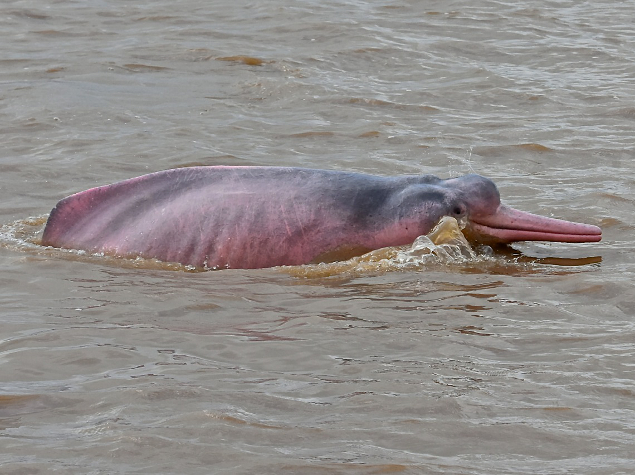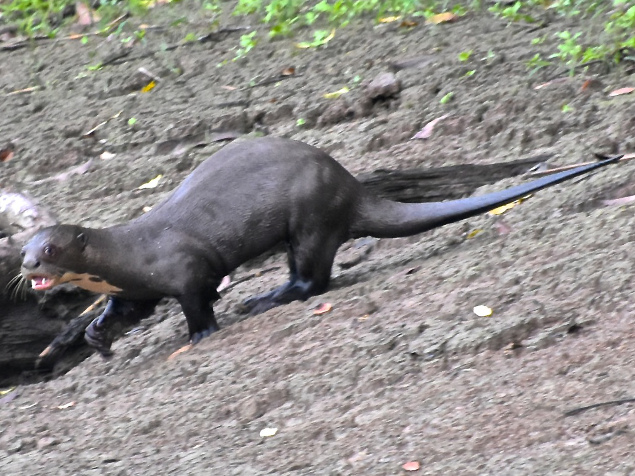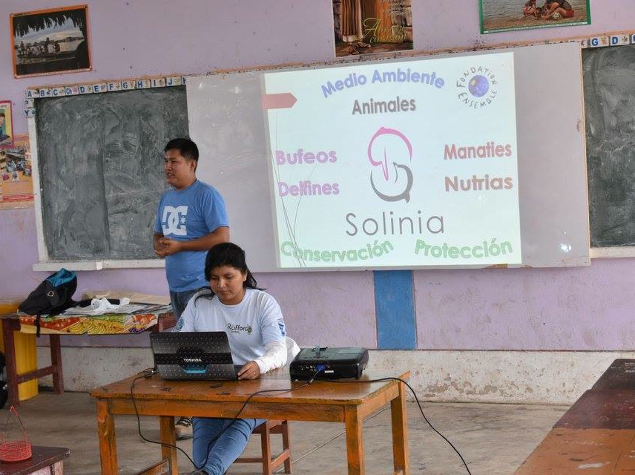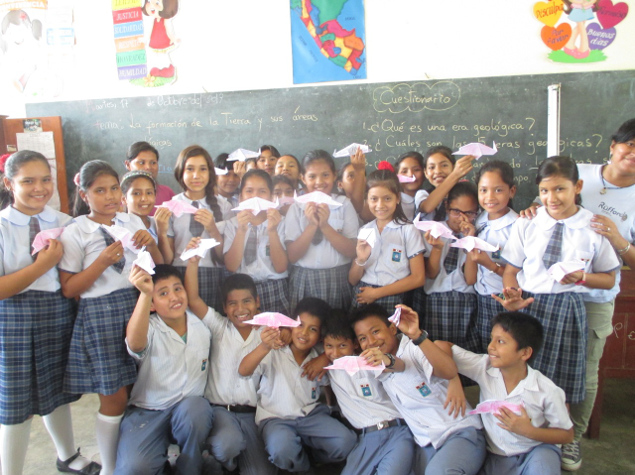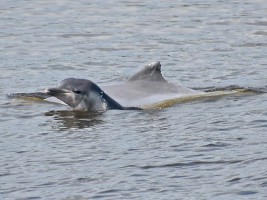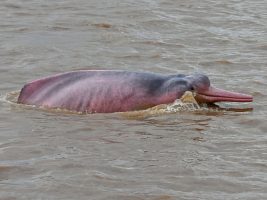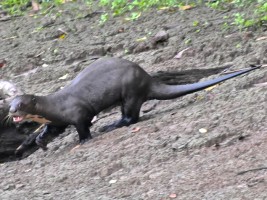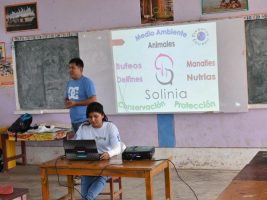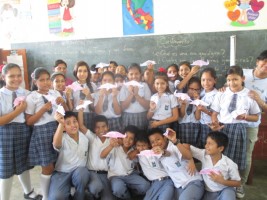Conservation of freshwater mammals (dolphins, manatees and giant otters) in Peruvian Amazonia (Loreto region)
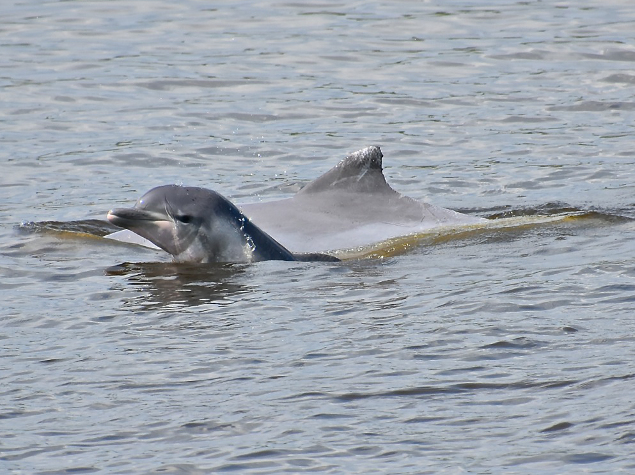
Iquitos is the capital of Loreto Department in Peruvian Amazonia. Most of the inhabitants are poor, and the local communities rely mainly on fishing and farming for their livelihoods. The low level of education is a real issue. Heavy bureaucracy and corruption also hinder efficient management of the region. Lastly, plastic pollution is causing permanent damage.
Despite being legally protected, the pink dolphin, tucuxi, Amazonian manatee and giant otter are under serious threat, mainly from fishing and industry. Further pressure is put on these species by the voracious appetite of groups of giant otters, which makes them the enemy of fishers; the use of dolphin meat as bait; and the consumption of manatee meat.
The aim of this project is to promote these different species as being emblematic of the region so as to develop responsible wildlife observation tourism. To achieve this goal, various initiatives will be carried out:
- Teaching the region’s future generations about the biology of the threatened species targeted by the project: to achieve this, presentations will be given in schools. The NGO will also take part in a benchmark show for conservation education;
- Explaining to fishers’ associations, tourist guides and the general public the important role played by these species in the Amazonian ecosystem and the need to protect them and conserve their habitat. Workshops will be organized, and the NGO will be present in the public arena and attend fairs and events. A poster showing a photo of each species and with a conservation message will be designed in partnership with the regional government and other associations, and will be distributed and displayed in the region;
- Estimating the size of the freshwater dolphin population around the city of Iquitos, and countering the threats in the region by developing responsible tourism. Dolphin observation sessions with data collection (species, number, location, etc.) on the Amazon near Iquitos will be organized twice weekly in order to monitor the threat status and support wildlife observation tourism.
Final summary report:
Over the funded period, Solinia carried out various activities:
- 59 meetings in 9 primary institutions and 3 communities have been done towards 2,000 children. The 4 targeted species are presented as well as the threats to them. Origamis are realized, and the children make the promise to protect the species and nature.
- Various workshops and meetings have been done in the Caballococha region, which includes a lake where river dolphins evolve. In Iquitos, the association is in contact with the tourism board to promote a sustainable observation of the dolphins.
- Simultaneously, 93 trips have been organized to allow the observation, at each expedition, of an average 7 to 8 amazon dolphins and 5 tucuxis. Territorial behaviors have been observed with amazon dolphins but also aggressivity with tucuxis and a competition with fishers.
- 2000 posters showing the 4 species have also been printed. They have been distributed to the project’s collaborators and are regularly printed by volunteers.
- The Solinia team will participate in the Aquatic Mammals in Latin America specialists congress to get acquainted and make 2 presentations.
This project is partly funded thanks to the sponsorship of a generous donor. If you also wish to support initiatives towards threatened animal species conservation, click here.

